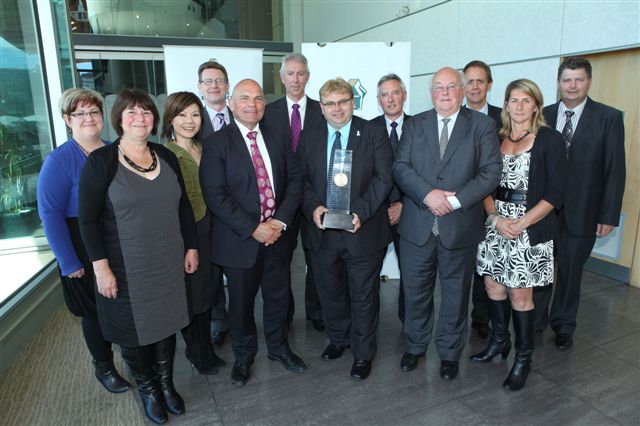Hutt City Council
Long-term investment in excellence provides multiple results
 Low debt, low rates, and happy customers are the result of a 13-year investment by Hutt City Council. And they have independent, international recognition to prove it. The Council is one of only four organisations in New Zealand in the past 15 years to win gold in New Zealand Business Excellence Foundation Awards.
Low debt, low rates, and happy customers are the result of a 13-year investment by Hutt City Council. And they have independent, international recognition to prove it. The Council is one of only four organisations in New Zealand in the past 15 years to win gold in New Zealand Business Excellence Foundation Awards.
May Haines, Manager Organisational Performance and Risk, puts this down to the Council thinking and operating as a business despite having a fixed income and guaranteed customers. “If you were to go into Tony’s Tyres, for example, to buy a tyre, you would get a free coffee and a newspaper while you wait. But if you came into a council office you didn’t get a similar consistent high level of service. This leads to dissatisfaction and then complaints. The time and energy spent dealing with these were taking our managers and councillors away from the bigger issues.”
Effective = the right thing to do that meets customer requirements. Efficient = the best use of resources, value for money, and affordability.
This has been a long term transition for the Council. In the 1990s, the Council’s reputation was poor. “We were the most indebted Council in New Zealand, and public perceptions of us were very low,” says Ms Haines. They looked for a business framework that would provide assistance and assurance across the whole organisation – one that would help create alignment and be deployed across all teams. “We wanted to be the best and have a clear vision, clear priorities that were measurable, and results we could celebrate.”
The Council started with the Performance Excellence Study Awards (PESA) to gain access to other organisations’ success stories. They also signed up to the Baldrige model, which involved an initial assessment done by six people spending six to eight days talking to anyone and everyone at the Council and a feedback report. “They would ask questions such as ‘how do you listen to your customers’ and then asked customers if they were being heard.”
 The external feedback “was like gold”, recalls Ms Haines. It prompted a number of new organisational strategies based on what they had learned of best practice here and overseas. Their financial management strategy approach is now being mandated for all councils to adopt. “Our rates increases have been lower than inflation, and for the last five years have been the lowest of any council – except the Chathams.”
The external feedback “was like gold”, recalls Ms Haines. It prompted a number of new organisational strategies based on what they had learned of best practice here and overseas. Their financial management strategy approach is now being mandated for all councils to adopt. “Our rates increases have been lower than inflation, and for the last five years have been the lowest of any council – except the Chathams.”
Business excellence is now embedded in the Council’s culture. Key to this was “bringing the people with us”, and, after a few false starts, this involved “throwing the language away” and living the concept – making it real. Instead of talking about visions, the Council closed its doors for a day and all staff discussed and agreed on what it is they are trying to do: “a better city every day”.
“We want to be the best and continually improve. In these tough economic times, we are doing what is affordable and what our customers need,” says Ms Haines.
They haven’t looked back despite it being a tough process. “We are in it for a long time, not just a good time.”
Based on an interview with May Haines, Manager Organisational Performance and Risk, on 14 June 2012.
Disclaimer: This case study is the entity’s story – we have not audited the facts but have confirmed with the entity that its story is fairly represented.
